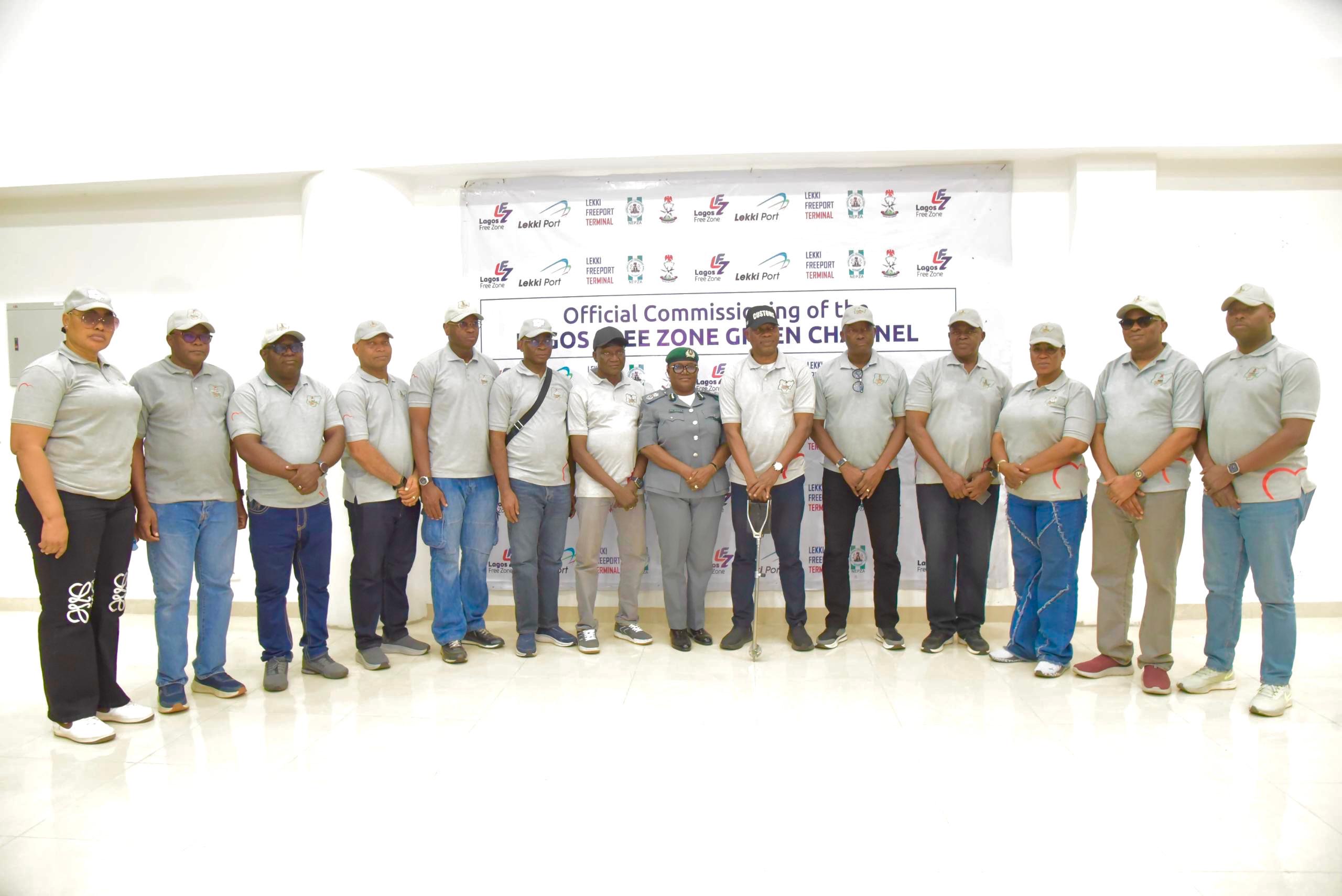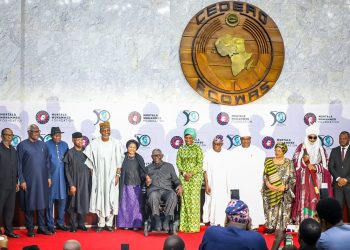By Nkechi Eze
In her continuing drive to reposition the Federal Ministry of Women Affairs as a key driver of national development, the Honourable Minister, Hajiya Imaan Sulaiman-Ibrahim, has restated her vision of the Ministry as “one family” bound by unity, collaboration, and mutual respect. She urged staff to embrace teamwork and internal harmony as the foundation for delivering excellence in service to Nigerian women, children, families, and vulnerable groups.
The Minister made this known during a meeting with Union executives, senior management, and staff of the Ministry in Abuja on Thursday evening. The gathering was described as a significant moment of engagement, designed to strengthen communication, rebuild trust, and reaffirm the shared values that bind the workforce together.
The Ministry as a Family
In a heartfelt address, Hajiya Imaan likened the Ministry to a family that must confront its challenges not with anger or disunity but with dialogue, patience, and love. “This Ministry is our family,” she declared. “And when a family has issues, it sits together and works them out with love, not with anger. My primary job is to make this Ministry a powerful force for change, and I cannot do that without a strong, healthy, and dedicated staff. Our collective strength is the foundation of our success. We are rebuilding this Ministry together.”
The Minister emphasised that her leadership style is rooted in inclusiveness and collective responsibility. According to her, the Ministry’s mandate cannot be achieved in isolation but through the combined energy and creativity of its staff. She reminded the workforce that the policies and programmes developed within the Ministry are vital to millions of Nigerians, making unity and collaboration indispensable.
Commendation for Leadership and Staff Commitment
Hajiya Imaan commended the Permanent Secretary, Dr. Maryam Ismaila Keshinro, for her tireless efforts in steering the Ministry’s daily operations, describing her as a stabilising force and a key partner in ensuring institutional efficiency. She urged staff to cooperate fully with her office to ensure seamless coordination and greater impact in delivering on the Ministry’s mandate.
The Minister also reassured staff of her unwavering commitment to their welfare. She pledged to prioritise improved working conditions, enhanced facilities, and transparent processes that respond fairly and urgently to genuine staff concerns. She said such measures were not only about improving staff satisfaction but also about building a motivated workforce capable of fulfilling the Ministry’s mandate at the highest level.
Staff as the Ministry’s Greatest Asset
In her remarks, the Permanent Secretary, Dr. Keshinro, echoed the Minister’s sentiments, describing staff as the Ministry’s “greatest asset.” According to her, the success or failure of the institution rests squarely on the shoulders of the workforce. “This meeting is about you our greatest asset,” she said. “The well-being, motivation, and growth of staff remain at the heart of this Ministry’s ability to deliver on its mandate to the nation. A content and empowered workforce is the foundation upon which excellence in public service is built.”
Dr. Keshinro explained that while the meeting had been delayed due to pressing national duties, its eventual holding demonstrated management’s commitment to continuous engagement, fairness, and transparent dialogue with staff. She stressed that regular interactions between management and staff are key to fostering understanding, trust, and unity of purpose.
Building Institutional Strength Through Reforms
To institutionalise stronger communication and collaboration, the Minister unveiled a series of staff-focused initiatives designed to entrench openness, capacity-building, and collective ownership of the Ministry’s goals. These include open-door dialogue sessions, periodic consultations with staff representatives, and regular workshops and strategic retreats. Such initiatives, she explained, are directly aligned with President Bola Ahmed Tinubu’s Renewed Hope Agenda, which places strong emphasis on inclusivity, social justice, and the empowerment of vulnerable groups.
According to Hajiya Imaan, these reforms are not merely administrative but transformational, designed to position the Ministry as a frontline driver of national development. She explained that true transformation can only occur when the Ministry’s internal structures reflect the values it advocates externally—unity, empathy, and dedication to service.
Internal Harmony as the Bedrock of External Success
Concluding her address, Hajiya Imaan reminded staff that the Ministry’s impact on Nigerian women, children, and vulnerable populations depends first on internal harmony within the institution itself. “By approaching our challenges with the love and patience of a family, we will not only resolve them but also build a powerful legacy of service for the Nigerians we are honoured to serve,” she said.
Her call was both symbolic and strategic, underscoring the belief that strong institutions are built from within. For the Ministry of Women Affairs, an agency charged with critical responsibilities ranging from promoting gender equality to protecting children and advancing family welfare, this emphasis on unity and staff welfare carries significant implications for policy outcomes.
Background: The Role of the Ministry
The Federal Ministry of Women Affairs has over the years played a central role in advancing the rights and welfare of women, children, and vulnerable groups in Nigeria. Its responsibilities include promoting gender mainstreaming across government policies, addressing issues of child rights and protection, advancing women’s economic empowerment, and providing support for families in crisis.
Under Hajiya Imaan’s leadership, the Ministry has increasingly sought to align its programmes with contemporary realities, including the challenges of poverty, gender-based violence, unemployment, and social exclusion. By positioning staff welfare and institutional reform as a priority, the Minister has signalled that sustainable progress in these areas requires a motivated and united workforce.
A Renewed Vision of Service
Thursday’s meeting, therefore, was more than a routine interaction between management and staff. It was a moment of renewed vision and commitment, casting the Ministry not only as a government institution but as a “family” whose internal bonds of respect, unity, and collaboration will shape its external impact.
For many present, the Minister’s call to unity struck a chord, offering both reassurance and inspiration at a time when public institutions across Nigeria are under increasing pressure to deliver results. Her message was clear: the Ministry’s future lies in the hands of its people, and by standing together as one family, it can become a powerful force for change in the lives of those it serves.

















